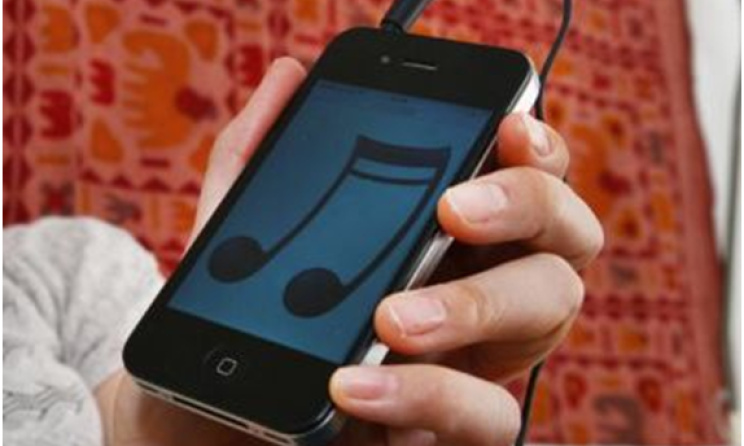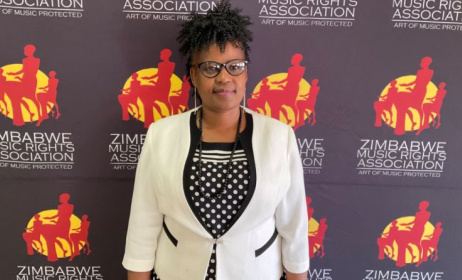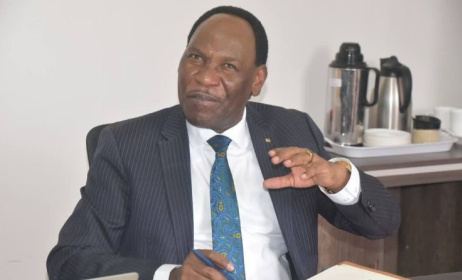Copyrights, royalties and music piracy in Congo-Brazzaville
By Yvon Laurier Ngombe
In July 2015, Brazzaville hosted the 10th Pan-African Music Festival (FESPAM). After the festivities, local musicians went back to their daily lives, usually facing financial challenges. These difficulties could be lessened if the rights of artists were respected, suggested a need for better understanding and implementation of the legislation. This text provides a brief overview of the related subjects of copyrights, royalties and music piracy in the Republic of the Congo, also known as Congo-Brazzaville.
 Congolese legislation should address unauthorized downloads (photo: home.bt.com)
Congolese legislation should address unauthorized downloads (photo: home.bt.com)
Copyrights
Congolese law of 7 July 1982 provides for the protection of copyrights (music and lyrics) and the protection of neighbouring rights (rights of phonogram producers and in particular the rights of performers). These beneficiaries have exclusive rights which allow them to exploit their work, their phonograms (including CDs) or their interpretations.
This set of rules constitutes the Copyright and Related Rights (also known as Literary and Artistic Property) and is referred to in English-speaking countries under the term 'Copyright'. Copyright therefore protects authors by providing specific privileges. The law regulates rights allowing the author to exploit or control the use of his work (to his advantage) and rights allowing the author to defend the relationship he has with his work (this is called moral right).
Who owns the rights to musical creations, records or music files? Musical right holders are essentially songwriters who own the music and lyrics and will allow their publishing (on CDs for example). Tracks need to be interpreted. Performers are, in turn, right holders. This is called neighbouring rights. These rights relate to interpretations that cannot be used without their consent. The recording and production of phonograms require the investment of a producer who will hold the rights to the CD, tape or file that cannot be sold or operated without permission. The producer also has neighbouring rights.
According to the 1982 law, songs are protected until the 50th year after the death of the author. Neighbouring rights, however, are under Congolese law protected for 20 years from the publication of the phonogram or interpretation.
Royalties
Authors have the right to exploit their work by conceding or transferring their rights to a contractor. In music, the sale of musical creations is granted to a publisher. The performer will sell the right to interpretation to a phonogram producer who will sell CDs or digital files handing back a percentage of the sales to the artist. This percentage is called royalties. Often an artist will combine the functions of songwriter and performer. An artist also earns from live performances where a show organizer is hired. Sponsorships also provide supplemental income to musicians. In Brazzaville, name-dropping (called Mabanga) is another economic aspect.
To better understand the exploitation or massive use of musical creations, various authors and artists adhere to a collective management organization or collecting society such as the BCDA (Bureau Congolais du Droit d’auteur) in the Democratic Republic of Congo. This office collects and distributes royalties. The BCDA collects royalties from various sources including the Ekala or Nganda (pubs), night clubs and bus companies. A percentage is then passed on to successors, including authors. The BCDA will also collect royalties from a live performance.
These two forms of remuneration - individual and collective – at least enable Congolese musicians to earn some income from their work and performances.
Piracy
All operations that are prohibited by law or unauthorized are regarded as damage to Copyright. Piracy, which is an offence, is one form of intellectual property right infringement. Piracy is generally understood as selling pirated copies of an album (lawyers speak of phonograms). Intellectual property right infringement includes other operations like plagiarism.
Pirated goods are sold all over the streets of Brazzaville, Pointe-Noire and Ouesso. Piracy is an act of infringement and is covered by the 1982 law. The infringer is liable to 100 000 francs and two years’ imprisonment. Pirated copies can be destroyed and the court will award compensation to the right holder. The fine might seem negligible with regard to the offence.
To distinguish illegal copies from those authorized by the manufacturer, the Congolese law requires affixing hologram stickers on each copy. This method of identification and authentication helps, in part, to combat counterfeiting.
Counterfeiting causes prejudice to the victims (authors, performers and producers). For this reason, Congolese law provides for "compensation for damages (...) including the payment of all profits made" by the counterfeiter or pirate. Compensation covers the loss of profit following the unauthorized exploitation of works, performances and phonograms.
Congolese legislation on copyright is outdated and needs to integrate new forms of counterfeiting such as unauthorized downloads or illegal streaming. A new law would also provide better protection by strengthening the rights of the BCDA. Better information and copyright training are necessary.
Further reading:- Loi n°24/82 du 7 juillet 1982 sur le Droit d’auteur et les droits voisins
- Yvon Laurier Ngombé. Rumba droit et Business, BOD, 2013
- Yvon Laurier Ngombé. Le Droit d’auteur en Afrique, L’Harmattan, 2009




























Comments
Log in or register to post comments